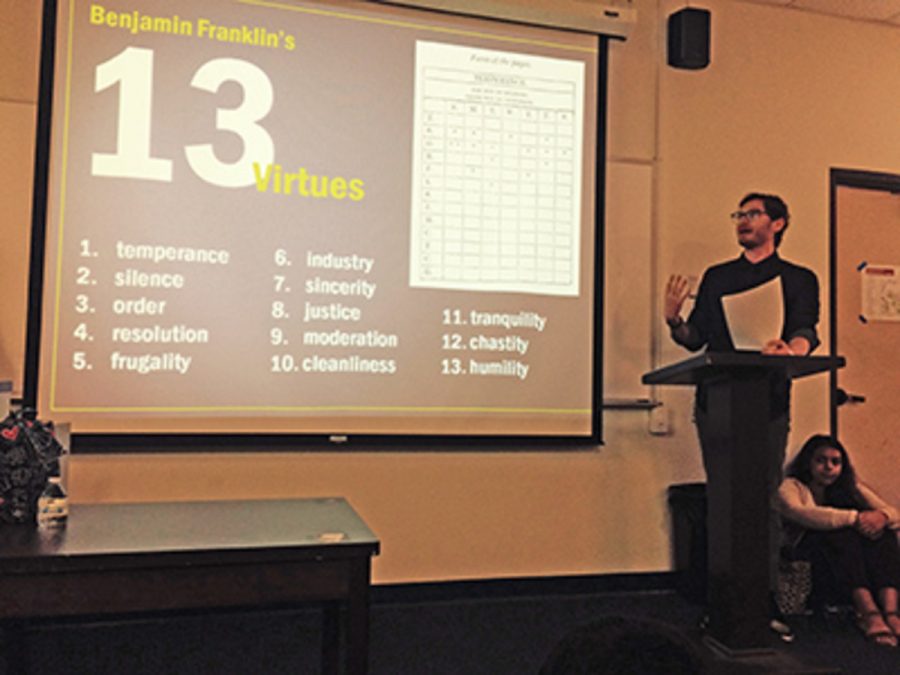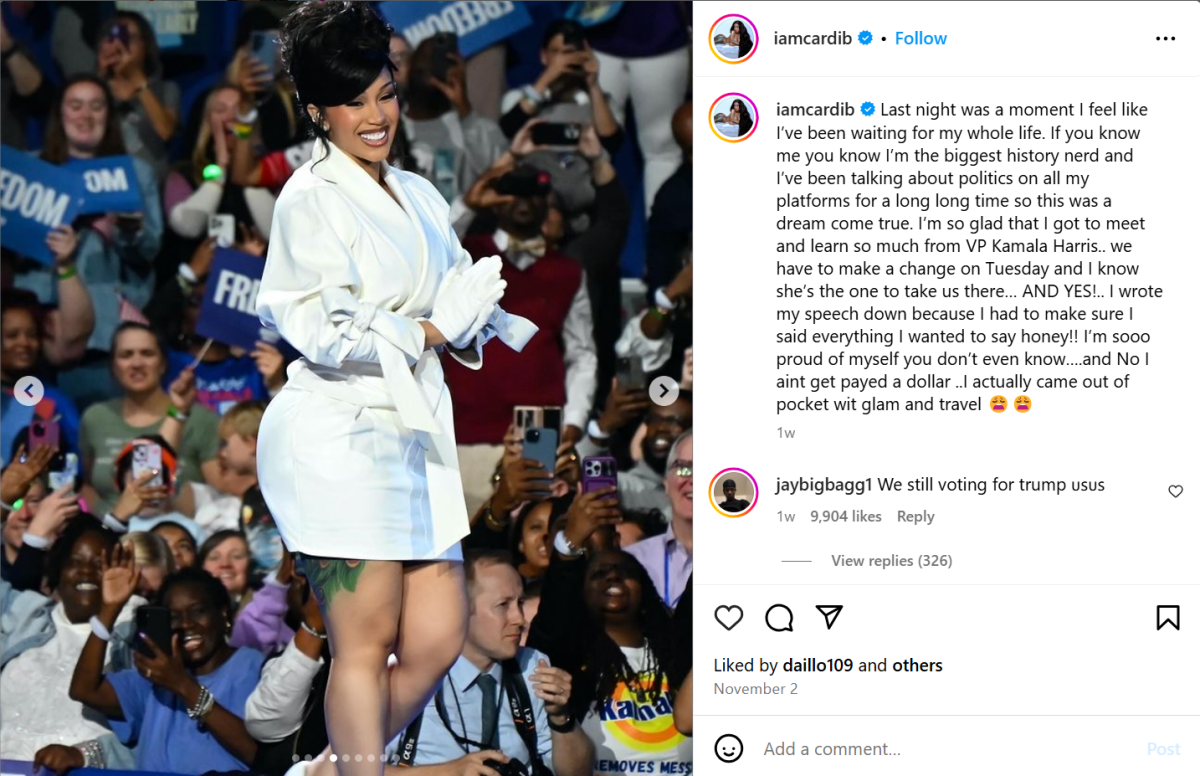From Benjamin Franklin’s self-made entrepreneurship to Kim Kardashian’s “selfie-made” fame, America has seen an evolution of icons that represent success in our culture.
Jeremy Kaye, an English professor, and Danielle Kaprellian, a librarian, gave a presentation on the shift of American culture’s portrayal of success throughout history by using 6 icon examples.
“I really wanted to take seriously the question, ‘is hard work really valued in this culture?’ because it just seems like we’ve made it out to be a chump activity,” said Kaye, whose inspiration on the topic came from the novel The Outliers, by Malcom Gladwell.
According to Kaye, Franklin was the epitome of the land of opportunity. He altered the hereditary status system. Franklin showed America that hard work would transcend the societal class that you were born into.
The ‘Rags-to-Riches Straggler’ icon appeared in post-civil war America when Carnegie and Rockefeller were industrial giants. However, The Great Depression changed the meaning of success. Suddenly, working hard was not enough to bring anyone success.
The next Icon was the Salesman, who used charisma and personality to gain consumer trust and sell their products.
Then there was The Conspicuous Consumer during the “Me-Decade”. These icons believed that greed is good and that acting gaudy was a lifestyle.
Kim Kardashian marked the next icon in history, the Self Branding Promoter. Her success lies in her positive public perception and her media spotlight that she puts on herself.
The last icon is the Youtube Micro-celebrity. These icons are able to make themselves famous through ‘likes’ and ‘views’ and these translate into their success.
American culture has come down to a lack of distinction between sexuality and success, which completely opposes the 13 values that Franklin imposed in his life.
“I’ve always been fascinated by social media,” said Kaprellian. “Trends can be seen heading in a certain direction but it’s like a train you can’t stop!”
So, is this social media driven version of success positive or negative on a consumerist society?
“It’s hard to say it doesn’t come off negative, but we have to try to be objective,” said Kaye.







